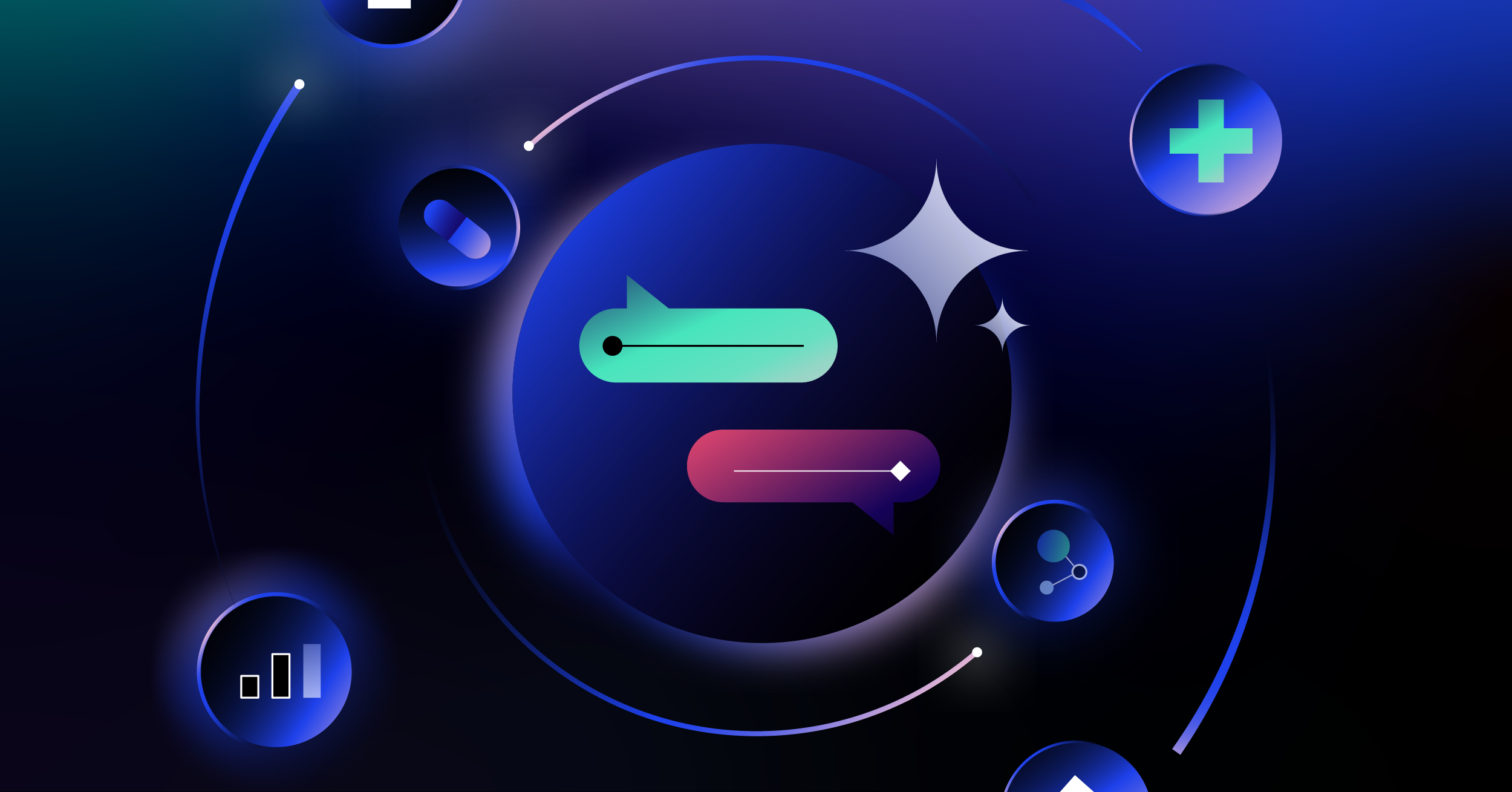As we look forward for healthcare communications, we stand at an inflection point. The fundamental principles of effective messaging—behavioral science foundations, quantitative measurement, linguistic optimization, and systematic refinement—remain constant. However, the context in which these principles are applied is rapidly evolving.
LLM technologies and rich data benchmarks are reshaping how messages are developed and delivered, and the implications for pharmaceutical companies seeking to maintain meaningful connections with healthcare professionals in an increasingly complex information ecosystem.
The Integration of AI in Message Development
The Integration of AI in Message Development
LLMs are transforming healthcare communications in ways that extend far beyond simple automation. AI technologies are becoming sophisticated partners in the message development and optimization process:
Predictive Analytics: Machine augments human creativity by analyzing vast datasets of message performance to predict how specific message elements will perform with different HCP segments. These predictions allow for more targeted optimization before messages ever reach their audience.
Natural Language Processing: NLP technologies enable deeper linguistic analysis, identifying subtle patterns in high-performing messages from benchmarks that might escape human observation. These insights can be systematically applied to new communications to enhance their effectiveness.
Generative AI: Generative AI systems are increasingly capable of producing draft messages that incorporate established principles of effectiveness. These systems serve not as replacements but as collaborative tools that accelerate the creative & iterative process.
Real-time Optimization: AI-powered systems can enable real-time message optimization based on immediate feedback, allowing communications to evolve dynamically rather than through discrete optimization cycles. The integration of AI into message development & optimization represents an enhancement—combining the creative and strategic capabilities of human experts with the pattern recognition and processing power of machine.
Personalization at Scale: The Next Frontier
Perhaps the most significant frontier in healthcare communications is the move toward true personalization at scale—delivering messages tailored to individual HCP preferences, practice patterns, and information needs while maintaining the efficiency of broader communication strategies.
Several developments are making this personalization increasingly feasible:
Preference Mapping: Advanced analytics now allow for detailed mapping of individual HCP communication preferences—from content interests to channel preferences to optimal message complexity—creating rich profiles that guide personalization.
Dynamic Content Systems: New content management technologies enable the assembly of personalized communications at an HCP level, allowing core messages to be automatically adapted to individual HCP characteristics and personas without requiring completely custom creation.
Behavioral Response Modeling: By analyzing how individual HCPs have responded to previous communications, predictive models can guide increasingly precise personalization that evolves with each interaction.
This move toward personalization represents a fundamental shift from mass communication to mass customization—maintaining efficiency while delivering increasingly relevant experiences to each healthcare professional.
Embracing Evidence-Based Communication
As we look to this future, the call to action for pharmaceutical communicators is clear: embrace an evidence-based approach to healthcare communications that combines the science of effectiveness with the art of engagement. This approach includes:
Investing in Measurement: Building robust systems to measure not just message exposure but true promotional effectiveness across the dimensions that matter—believability, uniqueness, motivation, and ultimately, impact on clinical decisions.
Optimizing Language: Paying careful attention to the linguistic elements of communications—from technical density to information structure to data presentation—recognizing that how information is presented is as important as what information is presented.
Embracing Iteration: Adopting an iterative approach to message development that views optimization not as a one-time event but as a continuous process of refinement guided by data and focused on continuous improvement.
Balancing Technology and Humanity: Leveraging advanced technologies while maintaining the human elements that make healthcare communications meaningful and trustworthy.
By embracing these principles, pharmaceutical communicators can create a future where healthcare communications achieve their highest purpose—not just delivering information, but truly supporting better healthcare decisions and ultimately, better patient outcomes.
In a world of information abundance, the value lies not in more communication but in better communication—messages that cut through the noise, resonate with healthcare professionals, and ultimately contribute to better healthcare decisions. This is the promise of message optimization, and the journey toward fulfilling this promise continues.
Get in touch with us for more information:


